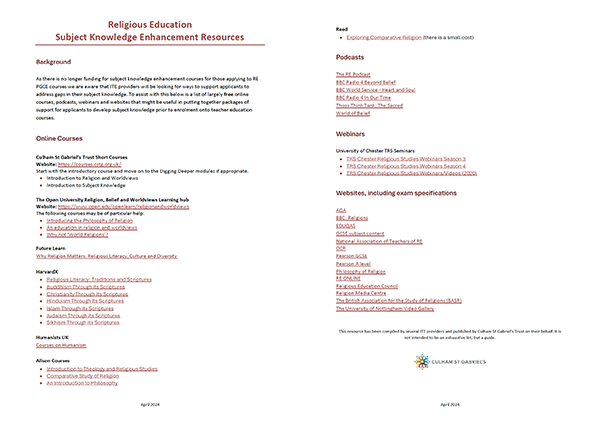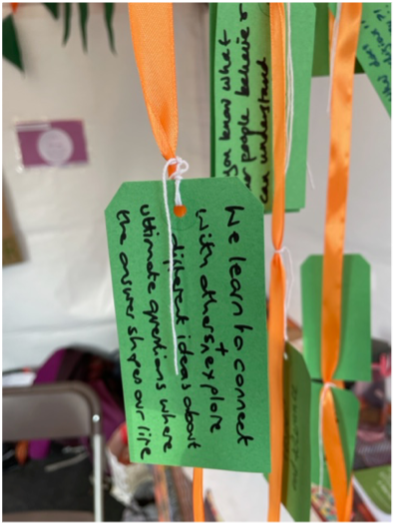Ofsted’s recently published Deep and Meaningful? The religious education subject report (2024) is a sobering read. However, there is hope.
Others have provided some helpful summaries[1] outlining Ofsted’s call for updated guidance from the DfE, the lack of depth and substance to the curriculum, over emphasis on teaching to an exam, long gaps between lessons and the need for subject specific professional development. The report foregrounds issues which those of us working directly in this field have raised for some time and have lobbied government about alongside our partners such as NATRE and the RE Council of England and Wales.
However, there is also hope. There are examples of effective practice where teachers are exemplifying scholarly and ambitious approaches to the subject. There are signs that some senior leaders are taking the subject very seriously despite the pressures on curriculum time, valuing its importance for young people in an increasingly complex world. In many ways this report is a call to action within educational establishments and a call for action by the current and future governments.
The recommendation that government should urgently update guidance reinforces the significance of the recently published National Content Standard for RE in England (RE Council 2023). As a charity which champions religion and worldviews education we have actively supported this publication and continue to lobby for its wider endorsement. In addition, we look forward to the publication by the RE Council in early May of a curriculum toolkit to support a religion and worldviews approach based on research and good practice.
Two of the factors which Ofsted highlight as contributing towards better quality RE are strong teacher subject knowledge and access to professional development. Culham St Gabriel’s provides freely accessible subject knowledge support through RE:ONLINE and our e-learning platform. Our varying scholarships, particularly our leadership programme exemplify the areas of professional development which Ofsted highlights- namely policy, curriculum subject knowledge, pedagogy and research. Some of our grant funded projects are also contributing to an understanding of assessment and curriculum breadth and depth.
At Cullham St Gabriel’s we will continue to do all we can to secure a religion and worldviews education which is deep and meaningful for all children and young people.
To find out more about our support for teachers:
Sign up to our newsletter
Check out our free e-learning courses
Find out more about our advocacy work
[1] see for example:
NATRE – OFSTED ‘Deep and Meaningful The Religious Education Subject Report April 2024’
RE Counci of England and Wales – Comment on Ofsted’s report on RE “Deep and meaningful? The religious education subject report” from RE Policy Unit.
Schools Week – Ofsted criticises ‘limited and poor quality’ RE lessons




